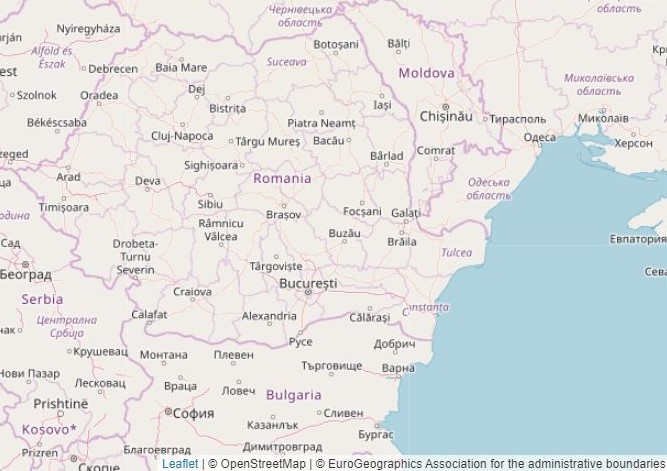This major project will improve water and wastewater infrastructure in Romania’s Sibiu and Braşov counties. The aim is to increase the collection and treatment of urban wastewater and extend the drinking water network, thereby helping the country to meet its Accession Treaty obligations and to comply with EU Directives.
- 14 February 2022
Most of the work will be carried out in Sibiu County’s 18 administrative territorial units (ATUs), while the remainder will be done in six ATUs in Braşov.
High water losses
At present, only 21.42 % (59 139 inhabitants) of the project area is connected to compliant water-supply services. The project aims to increase this to 99.2 % (273 432 inhabitants).
The current water supply infrastructure does not extend to the whole population. Furthermore, there is a high level of water loss, existing local sources are either of poor quality or do not provide enough supply, and water-storage capacity is insufficient.
The surface-water catchment area will be rehabilitated, 156 km of new main transmission pipes laid and 55 km of main pipes rehabilitated. In total, 164 km of drinking water distribution network will be built and 100 km rehabilitated.
Thirteen chlorination stations will be constructed and three district water-treatment plants rehabilitated.
A total of 16 pumping stations will be built and two rehabilitated, while 11 new water-storage tanks will be installed and 10 rehabilitated.
Inadequate sewerage network connections
Problems affecting the sewerage network include a lack of connections in rural areas, and poor collection and treatment of wastewater in agglomerations with more than 2 000 population equivalent (PE).
There are insufficient facilities to treat and recover dewatered sludge. The infrastructure is old, leading to frequent failures and high repair costs and untreated domestic sewage being discharged into local streams and rivers.
New sewerage works
The project will increase the connection rate in agglomerations with more than 10 000 PE from 85 % to 100 %, while those housing between 2 000 and 10 000 PE, it will increase from 78.04 % to 99.13 %.
In total, 10 km of main collection pipes will be laid, along with 40 km of new sewerage network pipes. A further 22 km of the network will be rehabilitated, while 8 km of discharge pipes will be installed and 0.3 km will be rehabilitated.
Twenty-six new domestic wastewater pumping stations will be built and three refurbished.
Four wastewater treatment plants will be rehabilitated: two serve agglomerations below 10 000 PE (Sălişte and Cristian), and two agglomerations above 10 000 PE (Făgăraș and Mohu). One treatment plant will be built near the town of Sibiului Miercurea.
A SCADA system to control the water supply and wastewater infrastructure will be developed by integrating existing dispatch rooms and equipment and setting up new ones.
The project will be carried out in two phases. The first, to be covered by the current EU funding application, represents about 40 % of the total project investment and includes work on the drinking-water and sewerage networks.
For the second phase, which covers the treatment plants, a new request for funding is planned to be submitted under the 2021-2027 Sustainable Development Programme.
Healthier environment
The project is expected to bring numerous health, environmental and socio-economic benefits to the counties.
Replacing asbestos-cement pipes and eliminating the use of drinking water from sources at risk of contamination from chemicals and metals, such as ammonium, iron and manganese, will reduce the incidence of diseases, including cancer.
Connecting households to the sewerage network eliminates the need for septic tanks – many of those in the project area do not function properly. This will reduce soil pollution and improve the quality of rivers and the local ecosystems which, in turn, will protect the population’s health.
Reducing drinking-water losses will save local authorities and residents money and help conserve resources.
Well-functioning drinking-water and wastewater networks will lay the foundation for the further development of tourism, commerce and industry in the region, thereby creating jobs and improving living conditions.
The beneficiary, water utility Apă-Canal Sibiu SA, expects to create 22 permanent jobs during the project’s operational phase.
Total investment and EU funding
Total investment for the project “Regional Water and Wastewater Infrastructure Development Project in Sibiu and Brașov counties” is EUR 264 925 442 , with the EU’s Cohesion Fund contributing EUR 71 628 924 through the “Large Infrastructure” Operational Programme for the 2014-2020 programming period. The investment falls under the priority “development of environmental infrastructure based on an efficient management of resources”.

